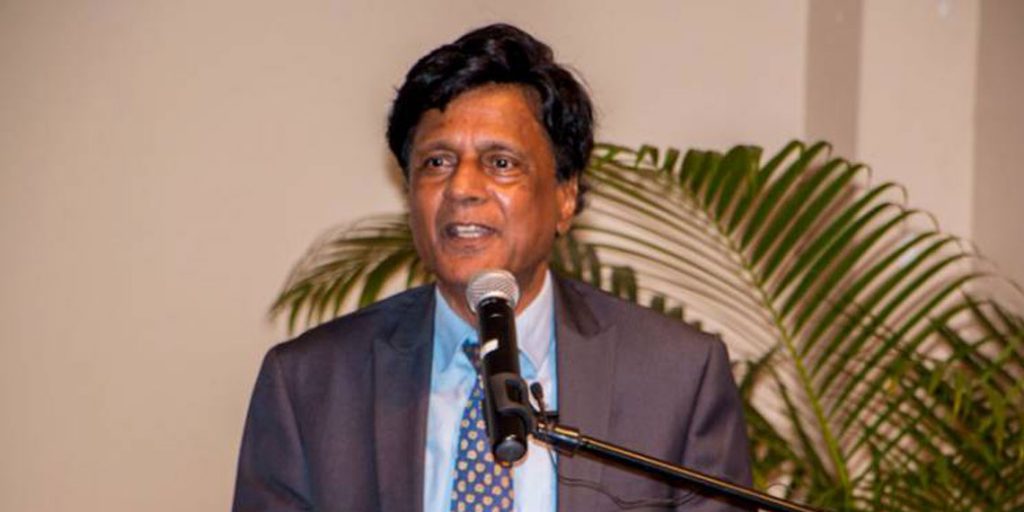It has been almost two years since the “CariCom Commission on the Economy” presented its Report “Caribbean 9.58 – Speeding up the Caribbean”, but to deadening silence locally. Perhaps it was the PNC’s stonewalling on the No Confidence Motion (NCM) and their attempted rigging of the March 2 2020 elections, with results not declared until Aug 2, 2020. Last week the syndicated Caribbean columnist, David Jessop reminded us of the Report in his column, “The Caribbean’s ‘big fish little fish”.
The Commission – with 10 eminent Caribbean and global experts, including one past and the incumbent Head of the WTO, acknowledged numerous previous W.I. Commission Reports, such as the 1992 Ramphal-led “Time for Action”. They offered candid reasons for them being shelved: “Despite having received over decades common-sense proposals that could enable the Anglophone Caribbean as a group to adapt to the external forces shaping economic globalisation and regional and international relationships, CARICOM governments do not appear to have the will or strategic patience required. Instead, fear of being left behind by neighbours, petty nationalism, and the domestic political consequences of voters seeing more economically viable neighbours achieving greater economic influence, suggests that the region as an entity is unlikely to match the pace of global economic change.”
Against that background, the Commission analysed the specific failure of CariCom to implement the 1989 CSME, even though all 15 member states signed on the revised Treaty of Chaguramas in 2002. The Commission offered a way out: “We have adopted an approach that attempts to cut the obstacles of funding and readiness and rests purely on political will…(and)…we have pointedly limited ourselves to a small number of recommendations that will require no new external financing but will move the needle of development and growth for all.”
Attempting to cut the Gordian Knot of CariCom’s unanimous decision-making rule, the Commission proposed, “We believe that a broader solution is one that recognizes ‘subsidiarity’ and the role of advanced parties cooperating more closely.” The “principle of subsidiarity”, of course, was famously incorporated into the EU’s Maastricht Treaty to facilitate their decision making. It holds that “social and political issues should be dealt with at the most immediate (or local) level”. Meaning, that to accomplish the aims of CSME, a subset of members – designated “advanced parties” – might act in concert on particular issues once they so decide.
The Commission offered, “We believe that in the area of greater economic integration an “Enhanced Co-operation Mechanism” will overcome paralysis, where progress may be blocked by just one country or a small group of countries that may not be ready for an initiative.” While the Commission suggests a minimum of 1/3 of CariCom members utilize the “increased integration mechanism”, we believe that this arbitrarily violates its own principle of “subsidiarity” as well as the “first law of geography”. The latter commonsensically declares: “Everything is related to everything else. But near things are more related than distant things”. It offers an intuitive rationale for enhanced cooperation by some members through fortuitous “propinquity” – closeness to each other.
Moving from the theoretical to the reality of Caribbean geography, history, sociology and political challenges, in addition to economics, I propose that Trinidad, Guyana and Suriname are most ideally suited to proceed on the Commission’s “Enhanced Co-operation Mechanism” proposal. The discovery and ongoing development of what is probably the largest and last great oil play, 9 billion barrels and counting only in the Guyana waters as of now, creates an economic opportunity for the three Southern Caribbean neighbors to become the “Flying Geese” for the region. With Trinidad’s 100+ years of experience in oil (now depleted), manufacturing and deeper financialization, it complements the “new kids on the oil block” to simultaneously engage our southern giant neighbour Brazil.
Following Suriname’s President Santoki’s visit to Guyana last month, the agreements reached between the two countries already surpass the initial areas of cooperation identified by the Commission – transport, deepened financial integration, private sector involvement, especially for climate change resilience. All that is needed is for Trinidad to be invited to the table. A bonus of enhanced relations with Suriname will osmotically present Guyana and Trinidad new perspectives on governance of plural societies.
Citizens of these three countries should lobby their governments for this eventuality.
